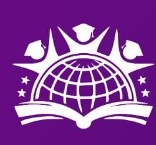JOIN OUR WEBINAR
Webinar : Career Pathway: Academia or Industry? | Study Abroad Tips & Graduate School Guide
Navigating graduate school successfully requires a range of skills and knowledge beyond academic content. Expert guidance in this area should focus on professional development, research skills, personal well-being, and practical strategies for thriving in a graduate environment.
- Time Management and Productivity Training
- Workshops on Time Management: Learn how to prioritize tasks, manage time effectively, and balance coursework, research, and personal life. These workshops often cover tools like scheduling software (e.g., Google Calendar, Trello) and methods such as the Pomodoro Technique.
- Task Prioritization Training: Understanding how to break large projects into manageable tasks using frameworks like SMART goals (Specific, Measurable, Achievable, Relevant, Time-bound).
- Research Skills and Methodology
- Research Design and Methodology Workshops: Trainings focused on qualitative, quantitative, and mixed methods research design. These may include modules on data collection, analysis tools (like SPSS, NVivo, or R), and writing a research proposal.
- Literature Review and Synthesis Training: Learn how to conduct a comprehensive literature review, synthesize research findings, and identify research gaps. Tools like EndNote, Zotero, and Mendeley for managing citations can be very helpful.
- Library and Database Resources: Graduate students should receive training on how to effectively use library databases, digital libraries (e.g., JSTOR, Google Scholar), and institutional resources to find relevant academic articles and materials.
- Writing and Communication Support
- Academic Writing Workshops: Graduate students can benefit from workshops focused on academic writing styles, structuring papers, thesis or dissertation writing, and preparing manuscripts for publication.
- Presentation Skills Training: Learn how to present research clearly and confidently, whether at academic conferences or in defense settings. These sessions often cover PowerPoint design, public speaking, and engaging with questions from the audience.
- Writing Centers: Most universities have writing centers where graduate students can receive one-on-one feedback on their writing, including grammar, clarity, and argumentation.
- Mentorship and Networking
- Mentorship Programs: Many graduate schools offer formal mentorship programs that pair new students with experienced faculty or senior peers. These mentors provide guidance on navigating academic expectations, research opportunities, and career planning.
- Graduate Student Networks: Joining academic and professional networks or societies related to your field (such as APA, MLA, IEEE) allows students to connect with peers and experts, fostering a sense of community and offering career-building opportunities.
- Funding and Grant Writing Training
- Grant Writing Workshops: Learn how to write compelling grant proposals for securing research funding, scholarships, and fellowships. Sessions typically cover identifying funding sources, structuring proposals, and understanding the review process.
- Fellowship and Scholarship Resources: Many universities offer workshops or resources on applying for fellowships and scholarships, providing tips on tailoring applications to different organizations.
- Career Development and Professional Skills
- Career Services: Universities often have career centers that offer guidance on resumes, cover letters, job searching, and interview preparation. Some may also provide specialized support for academic job markets, such as CV development and preparing for academic interviews.
- Internships and Practicum Opportunities: Encouraging students to pursue internships or practicum opportunities that align with their research or career goals.
- Transferable Skills Training: Sessions on soft skills like leadership, communication, teamwork, and project management. These skills are valuable in both academic and non-academic career paths.
- Stress Management and Mental Health Support
- Mental Health Resources: Access to counseling services, mindfulness workshops, and stress management seminars can be crucial for managing the pressures of graduate school.
- Work-Life Balance Seminars: Graduate students often struggle with maintaining balance between academic work, personal life, and professional development. Workshops on work-life balance can provide practical tips for avoiding burnout.
- Thesis and Dissertation Support
- Thesis/Dissertation Boot Camps: Intensive writing programs that provide structured writing time, accountability, and feedback to help students make progress on their thesis or dissertation.
- Peer Review and Writing Groups: Join or form writing groups with peers to receive feedback on drafts and gain motivation through collaborative work.
- Advisor Training: Many universities offer workshops for students on how to manage relationships with their academic advisors, including setting expectations, communication, and resolving conflicts.
- Publications and Academic Conferences
- Academic Publishing Workshops: Trainings on how to prepare papers for peer-reviewed journals, respond to reviewer comments, and navigate the academic publishing process.
- Conference Preparation: Support in selecting appropriate conferences, preparing presentations or posters, and networking effectively at academic conferences.
- International Graduate Student Resources
- Cultural and Academic Integration: For international students, it’s important to offer workshops that help them navigate cultural differences in academic expectations, as well as practical issues like visas, housing, and healthcare.
- Language Support: English language workshops for non-native speakers to enhance academic writing and speaking proficiency.
- Ethics and Integrity in Research
- Research Ethics and Integrity Training: Graduate students should receive guidance on research ethics, including the importance of honesty, integrity, and avoiding plagiarism. Topics may cover Institutional Review Board (IRB) processes, data management, and ethical research practices.
- Academic Integrity Resources: Universities often provide workshops on understanding academic integrity policies, avoiding plagiarism, and properly citing sources.
- Online Platforms and Resources
- Coursera, edX, and LinkedIn Learning: These platforms offer online courses on various graduate-level skills, including research methods, data analysis, writing, and career development.
- The Thesis Whisperer Blog: A popular blog with tips and advice for graduate students navigating research, writing, and academic life.
- GradHacker: Another blog that provides practical advice on surviving and thriving in graduate school.
- Financial Literacy
- Budgeting and Financial Planning: Graduate students often face financial challenges, so workshops on managing student loans, budgeting, and financial planning are valuable.
- Tax Filing and Fellowships: Understanding how to navigate tax filings and fellowship stipends, particularly for international students, is crucial for financial well-being.
